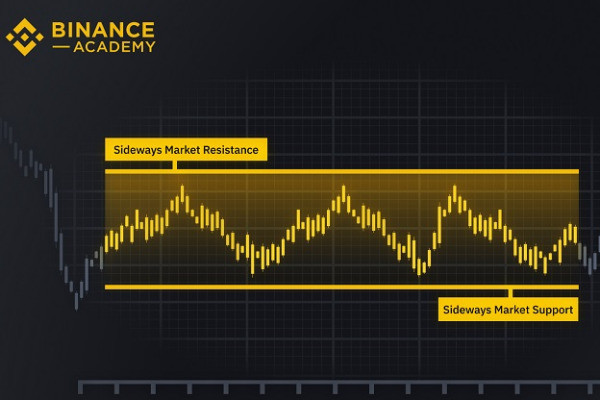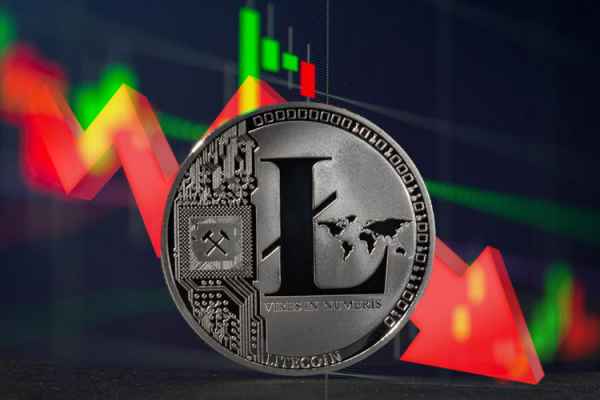What is Bitcoin ETF? Why are many investors attracted to the idea? Although it has not been approved by the SEC, there are other ways to get access to Bitcoin ETFs.

Many believe that Bitcoin and cryptocurrency have a bright future in the industry, but there is no guarantee that such vision is going to be successful. Like any other investment, Bitcoin is also pretty risky, considering that the market is extremely volatile and the price can fluctuate rather extremely in a short period.
This causes many investors to search for an alternative path that can increase their chance of success, other than buying and selling the crypto coin directly. One of the interesting subjects that have been discussed among crypto investors regarding this matter is the idea of creating cryptocurrency Exchange-Traded Funds (ETFs).
Indeed, the launch of cryptocurrency ETFs will probably be a phenomenal breakthrough, potentially leading to new all-time highs for various digital currencies or tokens. However, there is still no Bitcoin ETF available in any US exchanges up to this day. It's been years since the first attempt to get approval for a novel exchange-traded fund for Bitcoin, but the Securities and Exchange Commission (SEC) has not yet given its blessing on its release. Despite the lack of progress, the interests in Bitcoin ETF show no sign of waning. So, what is exactly Bitcoin ETF?
Contents
Understanding Bitcoin ETF
Exchange-Traded Fund or ETF is a type of security that tracks an index, a commodity, or a basket of assets. So, an ETF typically contains many types of assets like stocks, commodities, bonds, or a mixture of different asset types. It is marketable security, which means it has an associated price that allows investors to easily buy and sell it in the market. Keep in mind that it is different from mutual funds because shares in the ETF are tradable like stocks.
Should the SEC approve any Bitcoin ETFs, it would operate pretty much the same as any other ETFs. But instead of tracking market indexes like the S&P 500 or the Dow Jones Industrial Average, a Bitcoin ETF would focus on tracking the Bitcoin price. Thus, the price of a share in the ETF will follow the price of Bitcoin; if it rises, so would the ETF.
The reason why Bitcoin ETFs are still not approved is that many regulators are still quite concerned about the idea of creating cryptocurrency ETFs and treating it like securities, considering that the crypto market itself is largely unregulated. The SEC and the Commodities Futures Trading Commission believe that a new asset must be proven safe in order to be regulated in the US. Meanwhile, looking at the extreme Bitcoin price movements in 2017 and 2020, it's hard to say if the cryptocurrency is really safe. The situation has also made regulators rather skeptical of crypto's reliability.
Why do Investors Want Bitcoin ETFs?
Regular ETFs typically can simplify the investment of a certain asset. For example, ETF can eliminate the hassle of storing, distributing, and securing hard assets like gold. However, in the case of Bitcoin, the process is pretty easy in itself: the crypto holder only has to download an app to begin trading and manage their digital assets.
Even though cryptocurrencies have a much simpler way of sending and storing the asset, ETFs can make the process even smoother. For instance, some investors have been blocked from assessing their own Bitcoin wallets because they forgot their passwords. Meanwhile, ETFs can be traded right from the investor's brokerage accounts, which means it can eliminate the need of managing a crypto wallet.
If a Bitcoin ETF is approved, it will be able to combine and maximize the benefits of two popular investments: the ease of investing in an ETF and exposure to the popular digital asset Bitcoin. Using a Bitcoin ETF would dampen some effects caused by high volatility and solve challenges in storing and maintaining a crypto portfolio and wallet.
It can minimize the risk as well as diversify the investor's portfolio by tracking different assets or companies in a single fund. As some of the assets in the ETFs would be crypto futures, it would also expand the options available for investors. Lastly, like traditional ETFs, investors can also speculate and use hedging strategies.
Crypto-Focused Funds and ETF Opportunities
- Grayscale Bitcoin Investment Trust (GBTC)
The Grayscale Bitcoin Trust is the world's biggest Bitcoin index fund and the first investment vehicle of its kind that reports regularly to the SEC. Originally launched in 2013 as a Bitcoin Investment Trust (BIT), it gives investors exposure to the price movements of the leading cryptocurrency without having to buy the digital asset directly. Basically, what they do is buy Bitcoin and sell the shares of their company to the investors. This eliminates the need to hold safe storage for the coins and could save a number of associated costs. GBTC has an expense ratio of 2%, which is higher than typical ETFs. - Bitwise 10 Crypto Index Fund (BITW)
BITW offers a secure way to get diversified exposure to Bitcoin and several other leading digital currencies. The fund seeks to track and match the return of an index consisting of the 10 most highly valued digital currencies. The ed coins are screened and monitored for certain risks, weighted market capitalization, and rebalanced monthly. - Grayscale Digital Large Cap Fund (GDLC)
GDLC is an open-ended index fund that was founded in 2018 and managed by Grayscale. It provides exposure to various digital currencies including Bitcoin, Ether, Bitcoin Cash, and Litecoin. In a nutshell, the fund offers investors the opportunity to gain exposure to the price movement of several large-cap digital assets in a mutual fund vehicle so that investors won't have to buy and store the assets themselves.
ETFs with Access to Bitcoin Exposure
Although no Bitcoin ETF has been approved by the SEC, several ETFs have access to some Bitcoin allocations, such as:
1. ARK Web x.0 ETF (ARKW)
ARKW was launched in 2015 as an actively managed Innovation ETF of ARK Investment Management LLC. ARKW is listed on the New York Stock Exchange and is the first publicly traded ETF to invest in the digital currency Bitcoin. It focuses on assets and companies that are expected to take a profit from the increased use of technology and internet-based products and services.
To gain exposure to Bitcoin, ARK Investment purchased shares in GBTC. Bitcoin is the largest holding in the ARKW and currently makes up 8% of the fund. Aside from cryptocurrency, it also offers exposure to attractive internet-based businesses that are foreseen to achieve significant growth in the future, including cloud computing, machine learning, e-commerce, and so on. Some of the major holdings in ARKW are Amazon, Tesla, Facebook, Alphabet, and Netflix.
2. ARK Innovation ETF (ARKK)
ARKK basically combines the key holdings of ARK's actively managed innovation ETFs such as industrial innovation, web x.0, and genomics multi-sector. The largest holding in this ETF is the shares of Grayscale's Bitcoin Investment Trust, which reflects the fund manager's faith in the future of Bitcoin's price performance. The fund's Bitcoin exposure takes up 7.66% of the total holdings. Some other major holdings include Tesla, Athenahealth, Stratasys, Amazon, and Twitter.
Investors can trade the ARK Web x.0 ETF and the ARK Innovation ETF on the New York Stock Exchange's Arca Exchange, which is an all-electronic exchange with over 8,000 exchange-traded funds and equities. Whether it is an institutional or individual investor, they can buy or sell the securities listed on the exchange through their broker. If you want to gain Bitcoin exposure by investing in those two ETFs, you can do so by using brokerages that provide you with access to NYSE Arca listed ETFs, such as Fidelity, ETrade, OptionsHouse, Scottrade, and TradeStation.
See Also:
3. Amplify Transformational Data Sharing ETF (BLOK)
The Amplify Transformational Data Sharing ETF (BLOK) is an actively managed ETF that offers exposure particularly to firms that are actively involved in the blockchain and digital sharing sector. The fund invests globally with at least 80% of its holdings consisting of equity securities of companies that mostly focus on developing and utilizing transformational data-sharing technologies. A part of the holding is invested in GBTC.
Conclusion
Although there are still currently no Bitcoin ETFs approved by the SEC, a few ETFs have access to small allocations of Bitcoin. So even now, it's possible to ride the Bitcoin price without having to buy them directly. The Bitcoin exposure is mainly provided through investment in the GBTC, a Bitcoin trust with $30.02 billion assets under management as of September 2021. Investing in these ETFs can eliminate the need to hold crypto coins in a certain storage and save a number of associated costs. However, such investment is still relatively new so always proceed with caution and make sure to do proper research before putting any money into it.
Making profits from Bitcoin is now available in many ways. Apart from Bitcoin ETFs, you can be an affiliated partner in the industry. How does this work? Learn further in the Best Affiliate Programs to Earn Bitcoin.

 Dedicated FREE FOREX VPS
Dedicated FREE FOREX VPS Free FOREX Virtual Private Server
Free FOREX Virtual Private Server MT4 Demo Contest, Get $500
MT4 Demo Contest, Get $500 Sign Up for an Account, Claim 60% Deposit Bonus
Sign Up for an Account, Claim 60% Deposit Bonus Free MT4/MT5 VPS 2024
Free MT4/MT5 VPS 2024 Send E-mail and Get Free Merchandise
Send E-mail and Get Free Merchandise $1K Refer a Friend Bonus for Pepperstone Pro clients
$1K Refer a Friend Bonus for Pepperstone Pro clients Maximize Your Earnings with 100% Deposit bonus
Maximize Your Earnings with 100% Deposit bonus Trade to Win, $5,000 Monthly Demo Contest
Trade to Win, $5,000 Monthly Demo Contest Claim 30% + 15% Deposit Bonus from LiteFinance
Claim 30% + 15% Deposit Bonus from LiteFinance






 Bitcoin
Bitcoin Ethereum
Ethereum Tether
Tether BNB
BNB Solana
Solana USDC
USDC XRP
XRP Dogecoin
Dogecoin Toncoin
Toncoin Cardano
Cardano